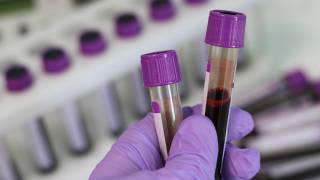Florida’s Hepatitis A Outbreak Accelerating, But Officials Remain ‘Quiet’

With an expanding hepatitis A outbreak across the state of Florida, local public health officials say they are ‘selectively deciding’ when to inform the dining-public of their potential health risk.
According to local news sources on May 7, 2019, Pinellas County, Florida’s Health Department is debating when to inform Floridians which restaurants have been identified for their hepatitis A risks.
“Epidemiological investigations are considered confidential,” said Pinellas County Health Department spokeswoman Maggie Hall on May 6th.
“We don’t identify restaurants where we do investigations.”
This is unfortunate news since Florida's Health Department has already confirmed 1,677 hepatitis A cases during 2019.
And the pace of new cases continues to increase.
Florida set a 1-week record of 92 hepatitis A cases during Week #19, which is between May 5-11, 2019.
But, the ABC Action News uncovered a potential double-standard when it comes to defining “confidential” information.
ABC Action News learned Pinellas County Health Department officials contact all restaurant employees to tell them when they’ve been working alongside someone with Hepatitis A virus (HAV) and then urges them to get vaccinated asap.
Which leads to the obvious question…. if there is a big enough HAV risk to coworkers, why not also warn the dining public?
ABC Action News posed that question to Pinellas County Health Director Dr. Ulyee Choe who replied, “We follow Centers for Disease Control and Prevention (CDC) protocols and it's always recommended that coworkers get vaccinated.”
Dr. Choe told the ABC Action News ‘he’ decides which restaurant workers are a threat to the public – mainly by focusing on the restaurant’s sanitary practices.
“We look at and do a joint assessment with [health inspectors at the Department of Business and Professional Regulation] to see hand hygiene practices,” said Dr. Choe said.
Which may be a good preventive practice, but may not be applicable …. after food staff has been determined to have worked while infectious with the hepatitis A virus.
The CDC did say in its November 2018 MMWR update:
- If a food handler receives a diagnosis of hepatitis A, post-exposure prophylaxis (PEP) should be administered to other food handlers at the same establishment.
- In settings in which repeated exposures to HAV might have occurred (institutional cafeterias), consideration of PEP use is warranted.
- PEP administration to patrons typically is not indicated, but may be considered if 1) during the time when the food handler was likely to be infectious, the food handler both directly handled uncooked foods or foods after cooking and had diarrhea or poor hygienic practices, and 2) patrons can be identified and treated within 2 weeks of exposure, though the risk for individual patrons remains low.
- Immune globulin may be considered for exposed patrons during the time the food handler was symptomatic and worked, who are immunocompromised or have chronic liver disease.
The 3 largest groups affected by the ongoing, multi-state, Hepatitis A virus outbreak during 2017-2019 are intravenous drug users, the homeless, and men who have participated in sexual intercourse with other men.
Additionally, food-service workers represent another sizable, at-risk population since their daily responsibilities include directly handling food and drink, said the CDC.
According to previous studies, the restaurant segment of the food-service industry has a long, sordid relationship with substance abuse and substance abuse disorders.
In 2015, a study conducted by The Substance Abuse and Mental Health Administration found the food services and hospitality industry to have the highest rates of substance use disorders of all employment sectors.
Which has been the situation during May 2019, at these Florida restaurants:
- May 17th - Sarasota - Duvals
- May 14th - Largo - Ted's Luncheonette
- May 8th - Hudson - ICON Gentlemen’s Club
- May 3rd - Clearwater - Arby’s
- May 2nd - Tarpon Springs - Taco Bell
- May 1st - Spring Hill - Silverthorn County Club Restaurant
Previously, during late January 2019, a Disney World employee working at the Fort Wilderness Resort restaurant was determined to have worked while infectious with the Hepatitis A virus.
A Disney spokesperson said in a statement, “Nothing is more important to us than safety. Upon learning this news, we immediately began working with the Florida Department of Health in Orange County, to ensure we have all of the right processes in place to protect our cast members and guests.’
Previously, 25 restaurant chains around the USA reported hepatitis A infected staff during 2018.
People infected with Hepatitis A are most contagious from 2 weeks before the onset of symptoms to 1 week afterward. Symptoms usually start within 28 days of exposure to the virus with a range of 15-50 days.
The CDC says to get vaccinated if you are at risk of contracting HAV. Additionally, immune globulin can provide short-term protection against hepatitis A, both pre- and post-exposure.
There are 3 vaccines approved in the USA, Vaqta, Havrix, and Twinrix are available at pharmacies in most states.
Pinellas County Health Department is offering Hepatitis A vaccines to the public at no cost at several vaccine centers. For more information on where you can get these free vaccines in Pinellas County, click here.
Other Florida counties, including Hillsborough, also provide free or discounted Hepatitis A vaccines to underinsured people. Click here for more information.
Our Trust Standards: Medical Advisory Committee

























